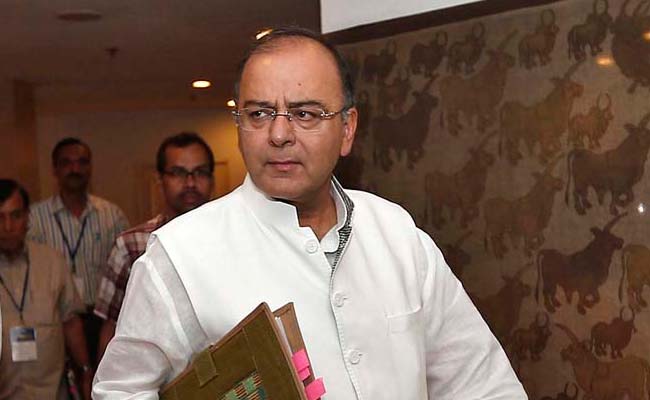
India is against high-tax structure: Jaitley
The on-going reforms and the already taken policy initiatives are much more than big bang, says Union Foreign Minister Arun Jaitley, referring to the reforms that are taking place ahead of the Parliamentary Budget session, in which the newly formed NDA government will be placing full budget for the financial year 2015-16. Referring to reforms in major sectors like Railways, Defence, Mining, among others, the Minister said that after seeing sum-total of the reforms and policies already taken, even the big bang appears smaller in comparison. Goods and Service Tax (GST) Bill, which no one expected, is going to take its form this time and is it not a big bang, added the Minister, according to the sources, replying to the question whether the global investors are expecting a ‘big bang’ budget from the Ministry of Finance. The government has taken major decisions in the allocation of natural resources in the mining sector, which the past governments failed to take. Here it is noteworthy to mention that the Union Minister for Defence, Manohar Parrikar had earlier said in a statement that a $20 billion import bill for defence was not affordable and such a huge import bill has undesirable consequences for the economy, development and unemployment in the country,’ adding that the government is expected to come up with a document in two to three months on a suitable model for defence manufacturing and procurement. Over the issue of rising tax revenues from oil when the prices were falling, the Minister said that as of now the oil prices are coming down, but cannot say the future, as the oil companies are also facing losses after passing reductions on nine earlier occasions. However, he said, the taxes collected on oil may somehow come as a help to meet the revenue for social sector expenditure. On the tax benefits for the businesses, the Minister said that it depends on the growth of the manufacturing sector, adding, “If manufacturing sector grows up, and GDP meets 8-9%, then there will be flexibility.” On the infrastructure sector, the Minister said, “There will be public spending and private spending that will be encouraged. Of course, the infrastructure financing from international sources is also important, because that is the investment where capital is available at much cheaper rates and we will encourage people to do that. That is what we are doing here at Davos too,” adding that the target is to reduce the fiscal deficit below 3% over the next few years. Speaking with the global investors at the World Economic Forum, the Ministry hinted at rationalization of subsidies to cut the expenditure, rebuilding of tax structure, passing of the insurance bill, as the key highlights of the upcoming Parliament session, adding that he was against the high-taxation structure. On a whole, the Minister said that once the economic activity is in pace, then the government’s capacity to raise revenue will also increase, adding that the upcoming budget will be a special one for the government and the days later will be challenging in the case of implementation.
This article was published on January 24, 2015.





 to success.
to success.